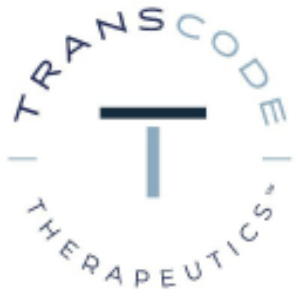TransCode Therapeutics Awarded Funding from National Institutes of Health (NIH) to Support Clinical Evaluation of TTX-MC138
TransCode Therapeutics, Inc. (Nasdaq: RNAZ), a platform company solving the challenge of RNA delivery in oncology, today announced that it has been awarded a Fast-Track Small Business Innovation Research (SBIR) grant from the NIH to support the clinical evaluation of TTX-MC138, TransCode’s lead therapeutic candidate for the treatment of metastatic solid tumors. The award totals
“We are honored that the NIH recognizes and supports our mission to overcome the obstacles of RNA delivery in oncology,” said Michael Dudley, President and Chief Executive Officer of TransCode. “We believe our TTX delivery platform offers tremendous potential across a range of indications. Specifically, this SBIR grant will help fund our planned first-in-human study of our lead candidate, TTX-MC138, in patients with metastatic breast cancer. We look forward to submitting an eIND application in the first quarter of next year. This trial is designed to evaluate and demonstrate proof-of-concept for the mechanism of action for our novel delivery platform, potentially enabling TransCode to pursue a diverse pipeline of TTX-based therapeutics.”
TransCode’s proprietary TTX platform leverages an iron oxide nanoparticle as a novel, image-guided system to safely and efficiently deliver oligonucleotides to their intended RNA target. TTX-MC138 targets MicoRNA-10b, believed to drive metastatic disease. The therapeutic has been validated preclinically in multiple indications and has been shown to induce durable regressions of metastatic disease in murine models of disseminated breast cancer.
About TransCode Therapeutics
TransCode is an emerging RNA oncology company created on the belief that cancer can be defeated through the intelligent design and effective delivery of RNA therapeutics. The Company has created a platform of drug candidates designed to target a variety of tumor types with the objective of significantly improving patient outcomes. The Company’s lead therapeutic candidate, TTX-MC138, is focused on treating metastatic cancer, which causes approximately
Forward-Looking Statements
This release contains “forward-looking statements” within the meaning of the Private Securities Litigation Reform Act of 1995, including, without limitation, statements concerning the SBIR grant, including the expected timing and receipt of the funds thereunder, and statements concerning the planned first-in-human study of TTX-MC138, including the timing of the planned eIND for this study and the outcome of this study, including whether this study will demonstrate proof-of-concept, and statements concerning TransCode’s development programs and TTX technology platform generally. Any forward-looking statements in this press release are based on management’s current expectations of future events and are subject to a number of risks and uncertainties that could cause actual results to differ materially and adversely from those set forth in or implied by such forward-looking statements. These risks and uncertainties include, but are not limited to: risk associated with drug discovery and development; the risk that the results of our planned clinical trials will not be consistent with our pre-clinical studies or expectations; risks associated with the timing and outcome of TransCode s planned regulatory submissions; risks associated with TransCode’s planned clinical trials for its product candidates; risks associated with obtaining, maintaining and protecting intellectual property; risks associated with TransCode’s ability to enforce its patents against infringers and defend its patent portfolio against challenges from third parties; the risk of competition from other companies developing products for similar uses; risks associated with TransCode’s financial condition and its need to obtain additional funding to support its business activities, including TransCode’s ability to continue as a going concern; risks associated with TransCode’s dependence on third parties; and risks associated with the COVID-19 coronavirus. For a discussion of other risks and uncertainties, and other important factors, any of which could cause TransCode’s actual results to differ from those contained in the forward-looking statements, see the section entitled “Risk Factors” in TransCode’s Final Prospectus for its initial public offering filed with the Securities and Exchange Commission on July 9. 2021, as well as discussions of potential risks, uncertainties and other important factors in TransCode’s subsequent filings with the Securities and Exchange Commission. All information in this press release is as of the date of the release, and Allena undertakes no duty to update this information unless required by law.
The names of other companies and products mentioned herein may be trademarks of their respective owners.
View source version on businesswire.com: https://www.businesswire.com/news/home/20210805005399/en/









